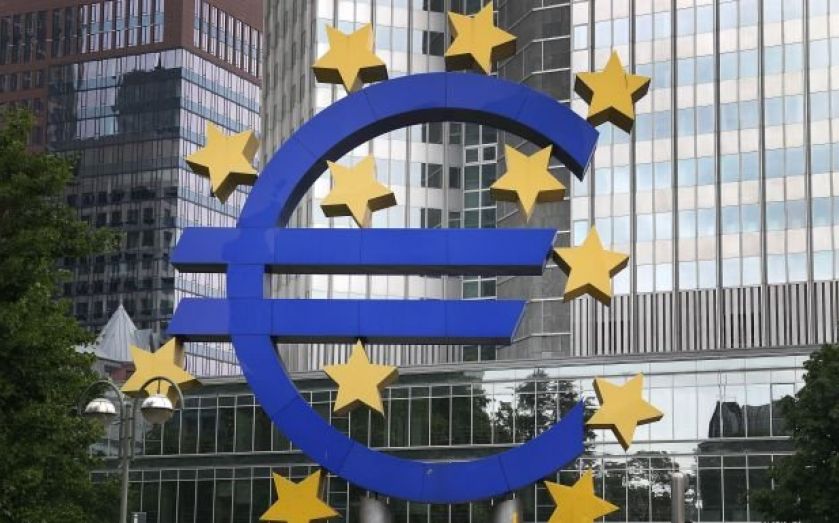| Updated:
No Eurozone GDP growth in second quarter after France and Germany disappoint

There was zero GDP growth for the Eurozone in the second quarter of 2014, according to figures released today.
The seasonally adjusted figures for GDP growth in the 18-country bloc grew by 0.2 per cent in the first quarter, and economists had predicted a similar level of growth in the second quarter. The result has therefore failed to meet expectations.
The official estimates released by Eurostat. showed particular weaknesses in the German and French economies, which together constitute 66 per cent of GDP output in the Eurozone area. This diminished improvements that were experienced elsewhere in the bloc, by countries such as Portugal and Spain.
On the back of the results, French finance minister Michel Sapin has slash his government's forecast for 2014 growth to "around 0.5 per cent". Previously, the projection had been of 1 per cent growth.
He told the daily Le Monde newspaper: "Growth has broken down, in Europe and in France.
"With zero growth in the second quarter, thereby extending the stagnation we saw in the first, our country is slowing down and will not achieve the 1% growth observers were predicting three months ago".
The wider European Union also experienced a slower growth than during the first quarter; in the second quarter, growth was 0.2 per cent, compared to 0.3 per cent in the first quarter.
Eurostat attributed the lack of growth to falling manufacturing output, as well as the effect of a large number of midweek public holidays on productivity.
The news comes amid already waning investor and business confidence, with ongoing tit-for-tat sanctions between Russia and western Europe causing concerns over economic strength.
GDP growth rates (%)
Inflation has “reached a trough”
On a slightly brighter note, the European Central Bank (ECB) said in its quarterly survey of professional forecasters that inflation in the single currency zone has “more or less reached a trough”, and that over the coming years it is predicted to start rising again.
Annual inflation for July was reported at 0.4 per cent, which is a considerable distance from the ECB's target of 2 per cent. It was also at its lowest level since the end of 2009.
In its survey, released this morning, the ECB said that "a number of respondents argued that the trough of inflation has more or less been reached". It added that forecasters expect inflation "to be on an upward sloping path over the next few years as a result of the recovery in real economic activity and an unwinding of the downward impact of previous oil, food and exchange rate development.”
The forecasters predicted that Eurozone inflation would reach an annual average 0.7 per cent this year and then pick up to 1.2 per cent in 2015 and 1.5 per cent in 2016.
The ECB wrote that the forecasts "imply a gradual strengthening of economic activity in the years ahead.”
